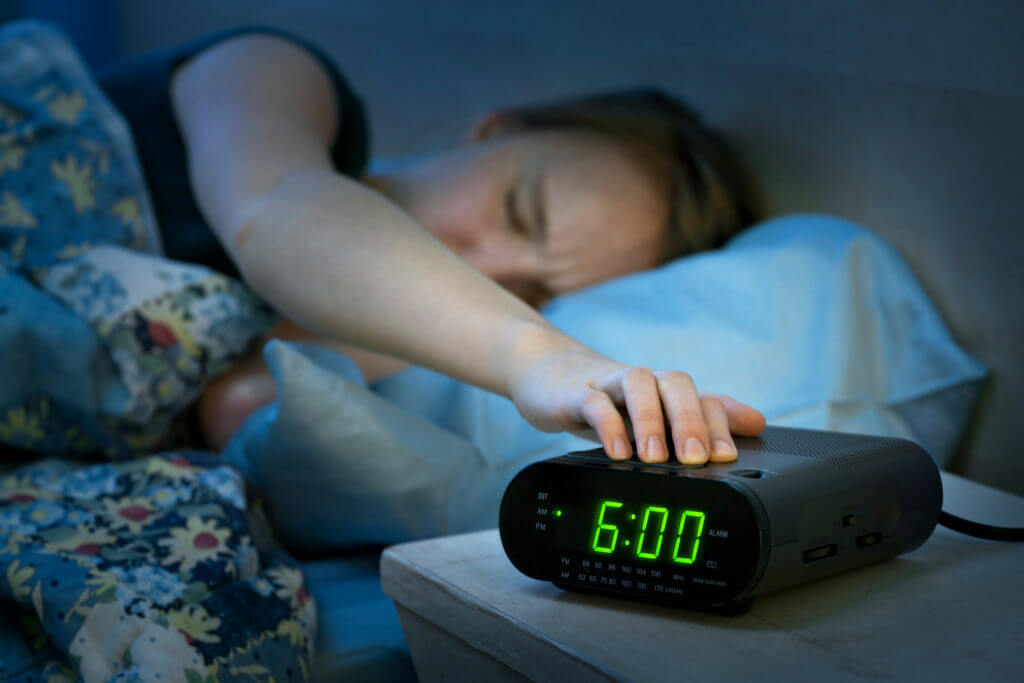BERGEN, Norway — Reminiscent of how Goldilocks searched for a bed that was “just right” in the three bears’ house, new research suggests the right amount of sleep can help lower one’s risk of infection and illness. Scientists at the University of Bergen say patients who reported sleeping too little or too much were also more likely to report a recent infection. Moreover, patients getting less sleep and dealing with insomnia or a chronic sleep disorder were even more likely to report needing antibiotics.
Patients speaking with their doctor about sleeping less than six hours or more than nine hours had a higher risk of infection. All in all, study authors conclude getting “good sleep” (6-9 hours nightly) regularly can help lower risk of infection and need for antibiotics.
“Most previous observational studies have looked at the association between sleep and infection in a sample of the general population,” says Dr. Ingeborg Forthun, corresponding author of the study, in a media release. “We wanted to assess this association among patients in primary care, where we know that the prevalence of sleep problems is much higher than in the population at large.”
There has been plenty of earlier research connecting sleep issues with a higher risk of infection. For example, one prior study found people intentionally infected with rhinovirus as part of an experiment were less likely to catch a cold — if they were getting a healthy amount of sleep. Sleep disturbances, of course, happen to many people and are very relatable. Still, if scientists can confirm a link between infection and a mechanism, it could make it possible to cut back on antibiotic use and protect people against infections before they even happen. However, experimental studies can’t reproduce real-life circumstances.

The research team provided a group of medical students with surveys and asked them to hand it out to patients in waiting-rooms of the general practitioners’ surgeries where the students were working. Researchers collected a total of 1,848 surveys across Norway, asking respondents to describe their sleep quality (sleep duration, how well they feel they sleep, and when they prefer to sleep), as well as if they had any infections or used antibiotics over the prior three months. The surveys also contained a scale that identified cases of chronic insomnia disorder.
Study authors discovered that patients reporting less than six hours of sleep nightly were 27 percent more likely to also report an infection. Meanwhile, patients sleeping more than nine hours were 44 percent more likely to report an infection. Less than six hours of sleep, or chronic insomnia, also raised the risk of needing an antibiotic to beat an infection.
“The higher risk of reporting an infection among patients who reported short or long sleep duration is not that surprising as we know that having an infection can cause both poor sleep and sleepiness,” Dr. Forthun explains. “But the higher risk of an infection among those with a chronic insomnia disorder indicate that the direction of this relationship also goes in the other direction; poor sleep can make your more susceptible to an infection.”
The research team admits this approach did leave some potential for bias in the sense that people’s recall of their sleep or recent health issues is not always perfect. Additionally, they did not collect clinical information from the doctors who saw the patients after this survey. Still, this research design allowed for the collection of data from a large study group dealing with real-world conditions.
“We don’t know why the patients visited their GPs, and it could be that an underlying health problem affects both the risk of poor sleep and risk of infection, but we don’t think this can fully explain our results,” Dr. Forthun adds.
“Insomnia is very common among patients in primary care but found to be under-recognized by general practitioners. Increased awareness of the importance of sleep, not only for general well-being, but for patients’ health, is needed both among patients and general practitioners.”
The findings appear in the journal Frontiers in Psychiatry.

